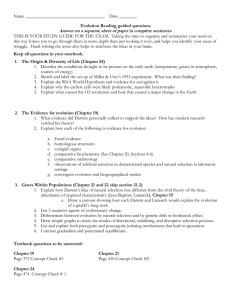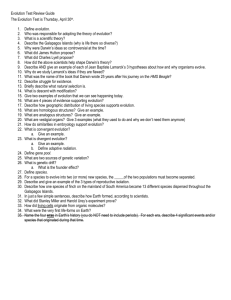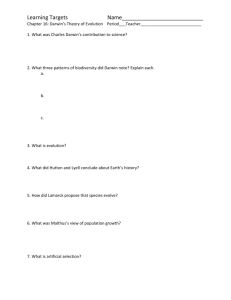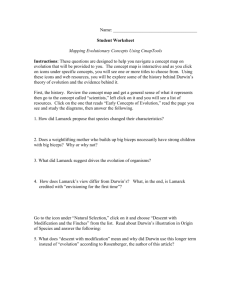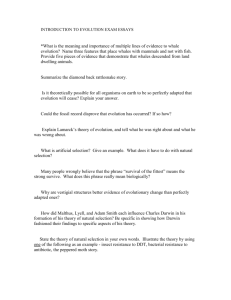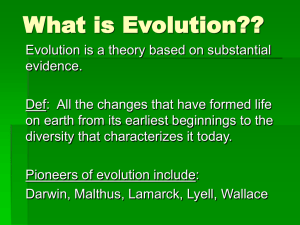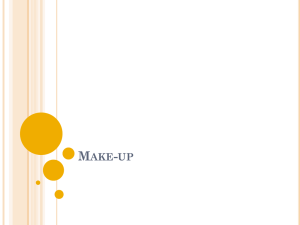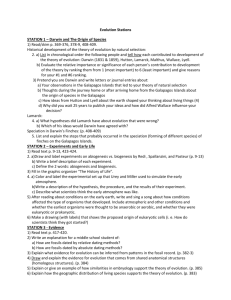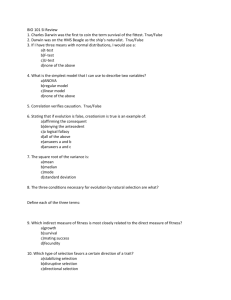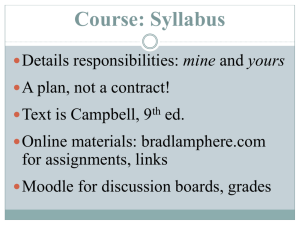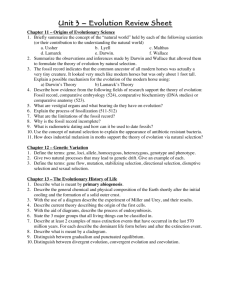Evolution Review Key
advertisement
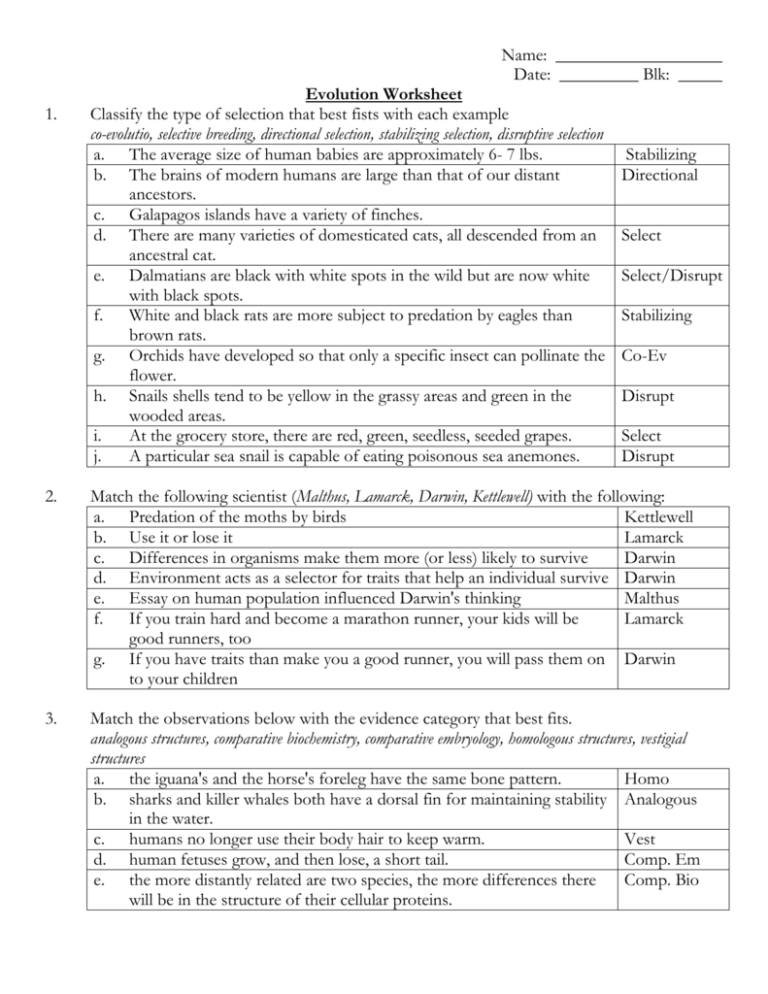
Name: ___________________ Date: _________ Blk: _____ 1. Evolution Worksheet Classify the type of selection that best fists with each example co-evolutio, selective breeding, directional selection, stabilizing selection, disruptive selection a. The average size of human babies are approximately 6- 7 lbs. b. The brains of modern humans are large than that of our distant ancestors. c. Galapagos islands have a variety of finches. d. There are many varieties of domesticated cats, all descended from an ancestral cat. e. Dalmatians are black with white spots in the wild but are now white with black spots. f. White and black rats are more subject to predation by eagles than brown rats. g. Orchids have developed so that only a specific insect can pollinate the flower. h. Snails shells tend to be yellow in the grassy areas and green in the wooded areas. i. At the grocery store, there are red, green, seedless, seeded grapes. j. A particular sea snail is capable of eating poisonous sea anemones. Stabilizing Directional Select Select/Disrupt Stabilizing Co-Ev Disrupt Select Disrupt 2. Match the following scientist (Malthus, Lamarck, Darwin, Kettlewell) with the following: a. Predation of the moths by birds Kettlewell b. Use it or lose it Lamarck c. Differences in organisms make them more (or less) likely to survive Darwin d. Environment acts as a selector for traits that help an individual survive Darwin e. Essay on human population influenced Darwin's thinking Malthus f. If you train hard and become a marathon runner, your kids will be Lamarck good runners, too g. If you have traits than make you a good runner, you will pass them on Darwin to your children 3. Match the observations below with the evidence category that best fits. analogous structures, comparative biochemistry, comparative embryology, homologous structures, vestigial structures a. the iguana's and the horse's foreleg have the same bone pattern. Homo b. sharks and killer whales both have a dorsal fin for maintaining stability Analogous in the water. c. humans no longer use their body hair to keep warm. Vest d. human fetuses grow, and then lose, a short tail. Comp. Em e. the more distantly related are two species, the more differences there Comp. Bio will be in the structure of their cellular proteins.
